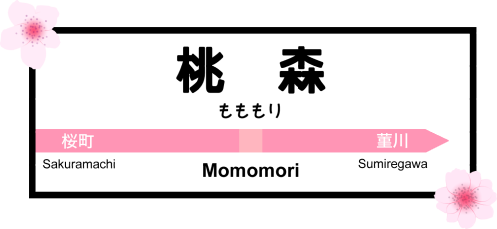An Example Workflow for People Who Are Interested in Everything
Introduction
I can’t tell you how many times I’ve googled “I have too many hobbies, what do I do?” I know, intellectually, that I am a temporal and mortal being, and that I just won’t get to everything, and that’s okay. But how do I stop decision fatigue and overwhelm, which causes me to panic and stare and procrastinate, even when I pare down the things I want to do to a somewhat manageable list of things I really really enjoy?
I can’t promise that I have all the answers, but I’ve made a lot of progress recently, and if you see something of yourself in this post, maybe this system will help you.
Caveat: This example workflow is intended for things that are open-ended and not time sensitive. You probably don’t want to manage paid work or deadline-driven tasks with these methods. This is not about capitalist or capitalist-adjacent notions of “productivity.” This is about making space for things you love when you have a zest for life, for knowledge, and for activities for their own sake.
Step 0: Brain Dump
You know how you have a billion ideas that float to you throughout the day? You suddenly remember “oh yeah, I wanted to do that thing, and that thing, and that other thing!” Do you have a bunch of things you idly want to work on but just haven’t gotten to? Are they all kind of seemingly unimportant but would really be enjoyable to do?
Open up a text file and write for 10–20 minutes, as long as it takes to feel like you’ve squeezed out every last fleeting whim, everything from “learn how to make puff pastry” to “listen to the top 50 charts from 1963” to “read this book i’ve had on my shelf since 2008.”
Step 1: Underline/Highlight/Bold
This step requires some brutal honesty. What are the things in that list that actually matter to you, the things that, if you died tomorrow, your ghost would be hanging around for? You probably know in your heart the things that are core to your self-concept, the identities that you really want to cultivate in yourself, and you also know the things that you just kind of sort of want to do because maybe they’ll help your career, or make you seem more interesting, or look good on paper. Underline or highlight the really important things. Here’s a sample brain dump I did a few months ago:
Want to watch all the TalkBank videos, draw, do calligraphy, sing, memorize song lyrics, translate, work on personal website, work on language learning game, read manga, read books, watch movies, play games, exercise, learn how to do hair, cook, bake, dance, play music, learn languages
That’s no small list, even just the bold items. But it made me accept that I’m not really that interested in playing games or learning how to do hair, those are just wistful thoughts that cross my mind every now and then.
Step 2: Randomize Working on Things and Set Aside Generic “Hobby” Time
There’s a lot I don’t agree with Piotr Wozniak on, but I think the concept of minimizing the number of decisions you need to make per day by letting a computer decide what you should think about for a set amount of time per day is very useful. Wozniak famously interacts with others only at his own pace, not even reading emails until his computer program brings them up and decides it’s time to read them. While that is extreme, the principle is understandable.
I often return to this Chapter from Pico Iyer's A Beginner's Guide to Japan, excerpted in this Harper’s Article, titled “Freedom From Choice.” One of the foibles of human psychology is that we hate to make choices. We really, really hate it. In an ideal world, someone would be telling us what to do who really did have our best interests at heart, and no ulterior motives. That person can be your current self + a computer assistant.
You’ll need to set aside time in your schedule for fun/self enrichment/hobby time. It can be open-ended. You don’t have to hack away at your hobbies like a to-do list if you don’t want, and no one will judge you if you take a day off. This is for the times you think “I have an hour to do whatever I want, but I have so many things I want to do I can’t even start.”
Free, Easy Method: A Text File and Random.org
Dump your underlined list into the List Randomizer at random.org. Do the #1 thing on your list until you don’t feel like it anymore. Then move down the list until your time is up or you get bored.
Maybe Not Free, Infuriating, Interesting Method: SuperMemo and Anki
I’ve written before about SuperMemo. I truly hate this software for several reasons. It is difficult to use, buggy, and prone to crashing catastrophically. I do not trust this jerk for one minute. But I love how it handles a) prioritizing topics and b) incremental reading, so I’ve worked it into my hobby time and it’s working well.
I dump stuff I want to read in there and open-ended tasks I never seem to get to as “topic” elements (I cannot find details about how SuperMemo schedules reading selections differently from how it schedules items you want to memorize, since they have different goals and, I must assume, different scheduling algorithms), such as “go through book of French idioms and add to Anki.” (That’s right, I start in SuperMemo but I make Anki cards for any small, question/answer format things I want to learn. If you’re comfortable with how SuperMemo works, you can skip the Anki part). I like that I can prioritize how important a Thing is in SuperMemo, then I just fire it up and it tells me what to do every day. If your tasks are less memory-oriented, this works too, just make it something like “practice piano for 5 minutes” and then come back.
Step 3: Chill
I can honestly say that for the first time in a very long time, I actually feel chill about the constant brain buzzing I usually have going on. I do my Hobby Time in the morning, before work, and then I feel at peace. In the same way that it’s healthy to clock out of your job at quitting time and stop thinking about it (you really, really need to do that, overworked humans), it’s very freeing to say “huh, there’s another Thing I’m interested in, and I’d love to get to, just throw it on the pile and maybe it’ll pop up when the universe decides it should.” And since Random.org generates its numbers based on atmospheric noise, you may actually, truthfully be able say that the universe had a hand in it.
back to garden





